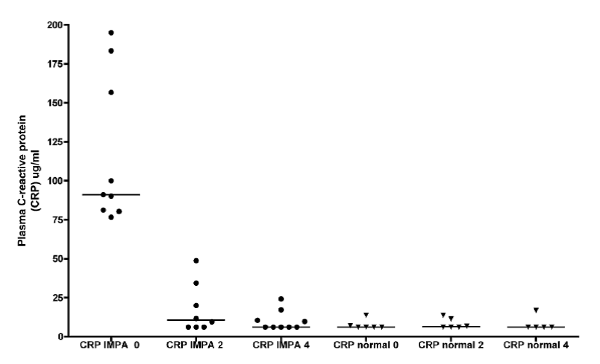Immune-mediated polyarthropathy (IMPA) is a common cause of chronic relapsing fever in dogs. It is associated with significant pain, lameness, or with a stiff/stilted gait. The diagnosis and monitoring of this disease requires serial synovial fluid analyses.
Recently published in the Journal of Veterinary Internal Medicine , Foster, et. al, found that CRP is useful as a surrogate marker of both synovial inflammation and clinical improvement. Monitoring a group of dogs with IMPA at time of initial diagnosis, week 2 of treatment, and week 4 of treatment, CRP steadily declined as the dogs improved.

In all dogs with IMPA, CRP was significantly higher than normal dogs and by week four, all dogs declined to normal or near normal levels. CRP was significantly correlated with several markers of clinical response, including CBPI scores, mobility, and synovial fluid cell counts.
CRP analyses offer a convenient and cost-effective approach to the monitoring of IMPA.
